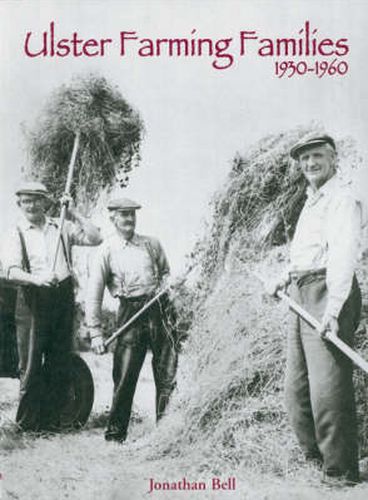Readings Newsletter
Become a Readings Member to make your shopping experience even easier.
Sign in or sign up for free!
You’re not far away from qualifying for FREE standard shipping within Australia
You’ve qualified for FREE standard shipping within Australia
The cart is loading…






This title is printed to order. This book may have been self-published. If so, we cannot guarantee the quality of the content. In the main most books will have gone through the editing process however some may not. We therefore suggest that you be aware of this before ordering this book. If in doubt check either the author or publisher’s details as we are unable to accept any returns unless they are faulty. Please contact us if you have any questions.
Farming in the generation between 1930 and 1960 saw changes on a previously unknown scale. On most holdings, work continued to be carried out by all the family members. Men, women and children all had roles in the production of crops and livestock. At busier times neighbors were called on for help, and workers were also hired some farms, either full-time or seasonally. All of these relationships could lead to tensions and conflict, but they also led to great intimacy and kindness, with individuals showing commitment to the well-being of their family, their neighbours, and even their employers and employees. This book uses oral history to explore life on Ulster farms between 1930 and 1960. This valuable record of the farming community describes in fascinating detail the many changes in practically every aspect of working life and their associated patterns of social life, all in the face of increasing government intervention, globalisation of markets, and the cataclysm of the Second World War. These massive changes have often been seen as damaging social networks in rural areas, but the collective memories of those involved bear witness to their marvellous capacity to adapt. The oral testimonies on which the book is based show that, for farming people, change could and did create new relationships and wider opportunities on both a prefessional and personal level.
$9.00 standard shipping within Australia
FREE standard shipping within Australia for orders over $100.00
Express & International shipping calculated at checkout
This title is printed to order. This book may have been self-published. If so, we cannot guarantee the quality of the content. In the main most books will have gone through the editing process however some may not. We therefore suggest that you be aware of this before ordering this book. If in doubt check either the author or publisher’s details as we are unable to accept any returns unless they are faulty. Please contact us if you have any questions.
Farming in the generation between 1930 and 1960 saw changes on a previously unknown scale. On most holdings, work continued to be carried out by all the family members. Men, women and children all had roles in the production of crops and livestock. At busier times neighbors were called on for help, and workers were also hired some farms, either full-time or seasonally. All of these relationships could lead to tensions and conflict, but they also led to great intimacy and kindness, with individuals showing commitment to the well-being of their family, their neighbours, and even their employers and employees. This book uses oral history to explore life on Ulster farms between 1930 and 1960. This valuable record of the farming community describes in fascinating detail the many changes in practically every aspect of working life and their associated patterns of social life, all in the face of increasing government intervention, globalisation of markets, and the cataclysm of the Second World War. These massive changes have often been seen as damaging social networks in rural areas, but the collective memories of those involved bear witness to their marvellous capacity to adapt. The oral testimonies on which the book is based show that, for farming people, change could and did create new relationships and wider opportunities on both a prefessional and personal level.